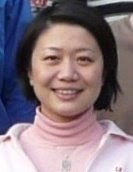Call for Papers
The 3rd International Workshop on Cognitive-based Text Understanding and Web Wisdom
12-14 December 2011, Sydney, Australia
http://iic.shu.edu.cn/huiyi/CTUW3rdCFP.html
in conjunction with the
International Conference on Social Computing and its Applications (SCA2011)
http://www.swinflow.org/confs/sca2011/
Recent years, many new theories and technologies for Web Wisdom have made the Web much wiser. Among these technologies, Cognitive-based text understanding (CTU) is one of the newest directions of Web Wisdom and should be paid more attention to. The machine understanding of Web resources is the basis of Web Wisdom. Cognitive Informatics (CI) is an emerging discipline that studies the natural intelligence, internal information processing mechanisms of the brain and the processes involved in perception and cognition as well. CTU simulates the cognitive process of human brain understanding text, so it takes advantage of cognitive theories to make the machine understanding of Web resources effectively and promotes Web Wisdom to a great extent.
Topics:
The objective of the workshop is to invite authors to submit original manuscripts that demonstrate and explore current advances in all aspects of Web Wisdom (especially the aspect of Cognitive-based text understanding). The workshop solicits novel papers on a broad range of topics, including but not limited to:
* Theories and Practices of World Wide Wisdom Web (W4)
* Cognitive Models and Computational Models for W4
* Intelligent Web Searching and Services
* Web Mining and Information Retrieval
* Web Knowledge Organization and Fusion
* Data Link and Semantic Link
* Web Knowledge Flow
* Web-based Cooperation Model
* Text Understanding and Representation
* Text Complexity Measurement
* Text Readability Measurement
* Text Trust Measurement
* Interactive Computing
Submission Requirements:
Please email your manuscripts in PDF to xwei@shu.edu.cn with the email subject as “CTUW paper submission”. Papers should be limited up to 8 pages in IEEE format. All papers will be peer reviewed by two or three pc members. Submitting a paper to the workshop means that if the paper is accepted, at least one author should register to SCA2011 and attend the conference to present the paper.
Publication of Papers:
All accepted papers will appear in the proceedings published by IEEE Computer Society (EI indexed). Selected papers will be invited to special issues of SCA2011 in Journal of Organizational Computing and Electronic Commerce, Social Science Computer Review and Computers in Human Behavior.
Important Dates:
Full paper submission due: August 15, 2011
Notification of acceptance: September 15, 2011
Camera-ready paper due: October 3, 2011
Conference presentation: December 12-14, 2011
Program Committee Co-Chairs:
Xiangfeng Luo, Shanghai University, China
Jinjun Chen, Swinburne University of Technology, Australia
Xiao Wei, Shanghai Institute of Technology, China
Program Committee:
Bernadette Sharp, Staffordshire University, UK
Chantal Soule-Dupuy, Université de Toulouse, France
Didier Schwab, University of Grenoble, France
Farhad Arbab, Leiden University, Netherlands
Feiyue Ye, Shanghai University, China
Florence Sèdes, Université de Toulouse, France
Jan van Leeuwen, Universiteit Utrecht, Netherlands
Jinjun Chen, Swinburne University of Technology, Australia
Lizhe Wang, Indiana University, USA
Marc Spaniol, Max Planck Institute for Computer Science, Germany
Michael Zock, LIF-CNRS, Marseille, France
Oliver Kutz, University of Bremen, Germany
Ralf Klamma, RWTH Aachen University, Germany
Roche Christophe, Université de Savoie, France
Ronald R. Yager, Iona College, USA
Stephane Bressan, National University of Singapore, Singapore
Styliani K. Loizou, University of Leeds, UK
Wanchun Dou, Nanjing University, China
Xiangfeng Luo, Shanghai University, China
Xiao Wei, Shanghai Institute of Technology, China
Xiaobo Yin, Anhui University of Science and Technology, China
Yiwei Cao, RWTH Aachen University, Germany




